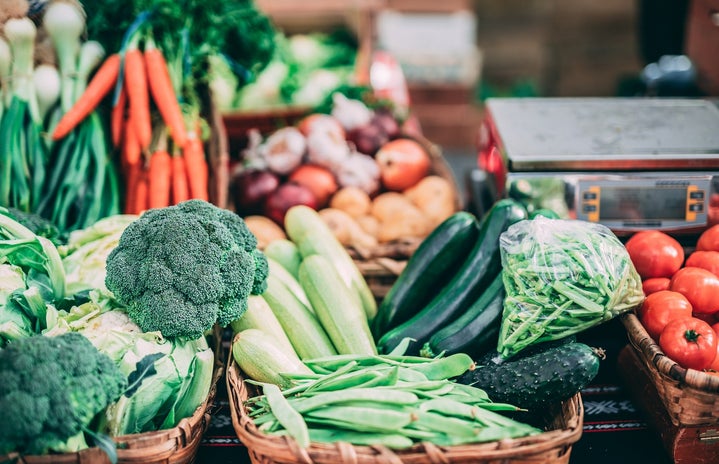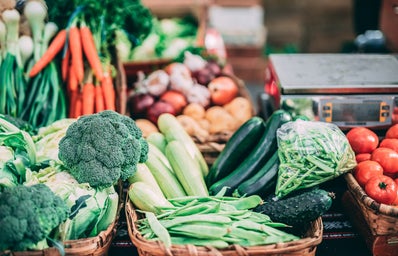Every Wednesday, University of Maryland students filled Tawes Plaza Gardens, on the hunt for freshly picked tomatoes, lunch from the Green Tidings food truck or honey sticks from “the bee guy.” As COVID-19 continues to ravage the country, that search has now become nothing more than photographs and words on a computer screen.
The farmers market’s manager Larry Tumlin remembers days at the market spent celebrating winter holidays, hosting outdoor events like pumpkin painting and yoga lessons and instructing live cooking demonstrations.
“I really kind of miss it,” Tumlin said. “And I’ll be glad when we’ll be able to go back to it again.”
Tumlin has worked for this university for about 29 years and has been with the farmers market for nearly six. Prior to working as the farmers market’s manager, Tumlin worked in a variety of positions, including a catering chef in the dining halls and the front house manager of dining hall services.
Tumlin now splits his time between the university’s farmers market, the Campus Pantry and Terp Farm. During the pandemic, Tumlin has primarily focused on the Campus Pantry and The Virtual Market.

Tumlin worked tirelessly throughout the semester to provide an alternative to the in-person farmers market students grew to know and love. Through The Virtual Market, students were able to access vendors previously available in person, all from the comfort of their own homes.
To Tumlin, this was no easy task. The Farmers Market at Maryland opened weekly, rain or shine since 2012, making 2020 the first year the market did not fully function.
“This is the first time that we have ever cancelled a market,” Tumlin said. “In the worst weather, we’ve been out there. We’ve had only maybe four vendors come out available there at the market, but we always have opened up. COVID knocked us out.”
The Virtual Market is easily accessible on the front page of the farmers market’s website, providing community members with a complete list of vendors, a description of the vendor’s products and a link to either the vendor’s website or contact information.
When the farmers market was able to operate in person, 13 to 14 vendors attended weekly. According to Tumlin, vendors like Country Vittles and RavenHook Bakehouse have been with the market since the very beginning, creating a unique environment to be a part of. Although vendors were forced to shift away from their old ways, the market was still able to be somewhat successful this fall.
“I wanted to give [the vendors] all of the exposure that we can give them from campus,” Tumlin said. “Everybody was kind of trying to find a way to continue on.”
According to a recent Instagram survey, approximately 41% of students said they previously attended the farmers market, yet only 7% were aware of the virtual farmers market this fall.
Tumlin and his colleagues hoped the virtual market would keep vendors in touch with on-campus life.
For the past six years, Tumlin has aimed to diversify and expand the market. He has been able to include craft vendors in the market, add new events to the farmers market calendar and create weekly demonstrations for students to observe.

Many students cited the baked goods, fresh produce, the “bee guy” and the coffee stand as their favorite aspects of the market. Students also echoed Tumlin’s sentiments on diversifying the market, sharing support for “quality items and no taxes.”
“I loved seeing everyone shop local and hearing the small business owners’ stories,” senior early childhood education/early childhood special education major Lizzy Ebel said. “And the soap guy was my favorite.”
In order to reopen next season, Tumlin said the market will need to take many precautions, including implementing an option to preorder produce, limiting the number of vendors and potentially reevaluating the location of the market. Currently, the farmers market operates in Tawes Plaza Garden — a location that is densely populated during class changes
At the moment, Tumlin and his colleagues don’t know when the farmers market will be able to reopen. However, they hope to provide an in-person market during the fall 2021 semester.
“Sometimes, the best thing to do is talk to your producer and find out how, when and where and what you can do with [food],” Tumlin said. “We’ll resolve a lot of cooking issues in your mind and make your experience and your appreciation of certain things … that’s something that you only can get from a farmers market.”


